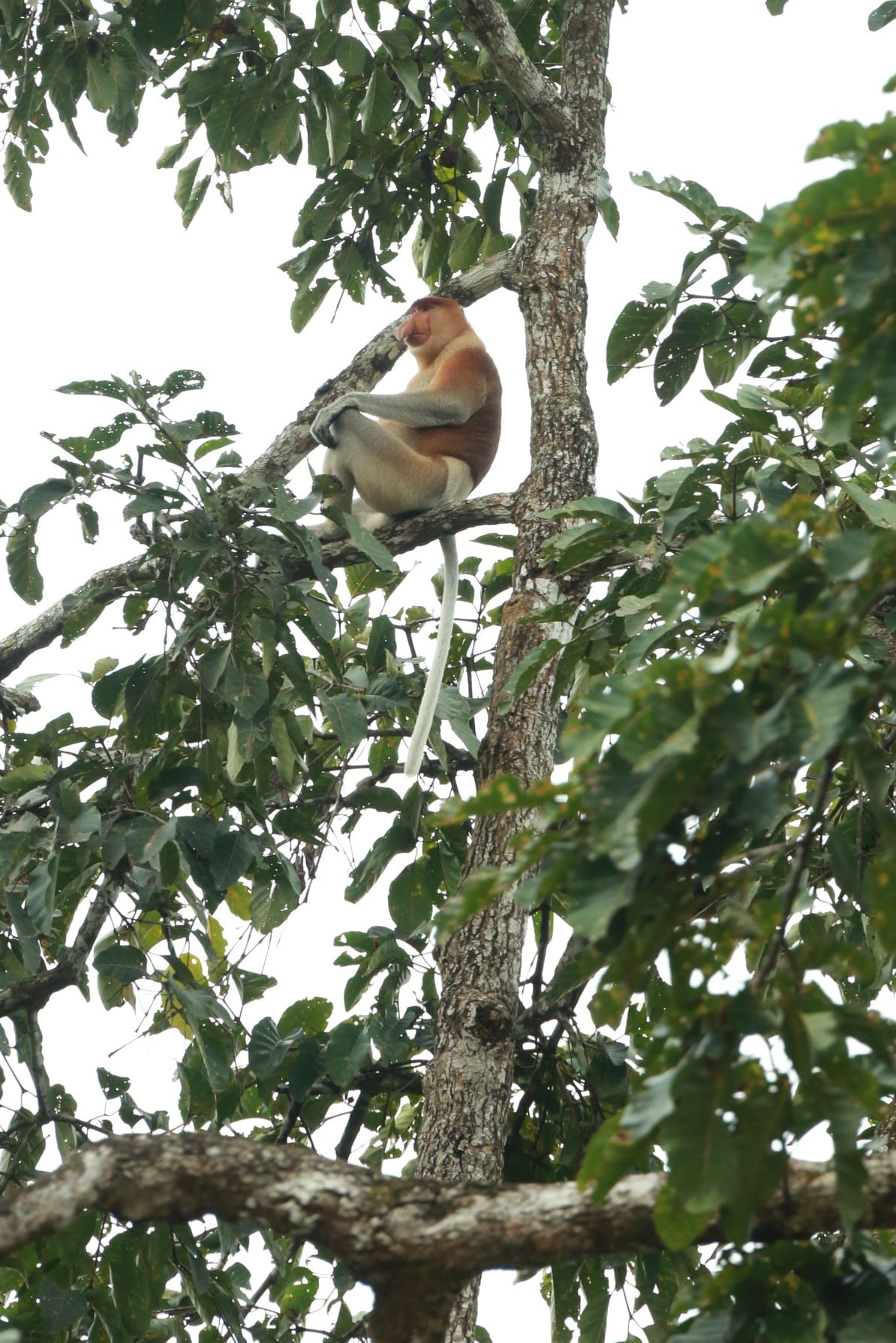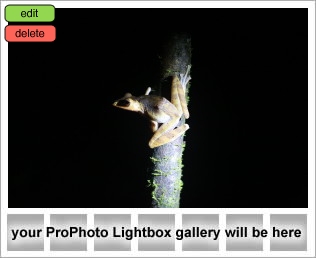Okay, okay, I know those famous words weren’t spoken on this island, but after spending 2 full days in jungle so dense it felt like I could make one turn and never find my way out (which is probably true), I couldn’t help but think of other explorers – of far more significance than this lowly backpacker – who trekked through similar terrain.
Borneo. It conjures images of dense jungle and primates, right? It will now also forever be synonymous with mud, mosquitoes, leeches, heat, humidity and the all-encompassing beauty that can be found by standing, perfectly silent, surrounded by jungle so thick that you can’t see more than 15 feet ahead of you.
Before heading out from Cornwall to start this trip, I had done some research into places to go to see orang-utan in the wild, but all roads led to Kalimantan, the Indonesian part of Borneo, which is more complicated to get into than Borneo and even more complicated to get out to the jungle than I was expecting. However, not yet completely deterred, I emailed a few guides, expecting to hear prices in the range of $100-150 per day for two of us to go on a trek. The results came back startlingly higher – upwards of $500/day. I abandoned hopes of embarking on any such trek and settled with the idea of going to Sepilok, one of the world’s most well-known orang-utan rehab centres, which is on the eastern edge of Borneo. Then a former colleague from London who is also in the country posted some info about a river south of Kota Kinabalu (KK) that has great orang-utan sightings. Excited doesn’t cover it and we promptly booked a trip when we arrived in KK. And so, the morning after arriving in KK, we had yet another early start so that we could make the 20-30 minute (turned out to be 15) drive out to the bus station and then make the 8-hr trip to Nature Lodge Kinabatangan for a 3-day trip.
Up bright and early – again… will I ever sleep past 6am?? – to meet our taxi, we headed out of KK along the waterfront. Dawn was breaking, causing the water and the sky to be nearly perfectly matched shades of deep blue. The road lights twinkled in the early morning light and a mosque, serene with its blue dome and four white towers, rose up from the trees along the boulevard. On the water, a lone man paddled his boat towards the shore, causing barely a ripple. In my sleep-deaf state, the taxi noise didn’t exist and all was right in the world. The bus station, in comparison, was a small-scale attack on the senses; bustling with people buying their tickets and men asking where we needed to go, it was a complete change from the cozy interior of our taxi, but we got our tickets and boarded our bus a short while later.
Our bus headed out of town and along one of the more impressively rugged mountain drives I can remember (apart from Hwy 25 around the Coromandel). High above the valley mist, we caught glimpses of farming terraces, the jagged peaks of Mt Kinabalu surrounded by cloud, and dense, green interlocking hills. When I nudged Rich and pointed to the view, he summarily but nonchalantly pronounced it ‘spectacular’. Bus 1 led to smaller bus 2 which led to a small boat ferry to the camp. Day 1 started at 4pm with a 2-hr river cruise and expectations rose significantly after making our first orang sighting in the first 30 minutes of the boat trip. A mother and baby, high up in a tree (this was a surprise – for some bizarre reason I expected them on the ground. Hey, I researched places to see them, not the animals themselves…), where we were able to watch them for a few minutes until Mama realised we were there and climbed down to lower branches where she and her infant could eat in peace. The rest of that day’s river safari included sightings of lemur, silver langur, a yellow-ringed cat snake, macaques and proboscis monkeys, as well as kingfishers, rhinoceros hornbills and, my personal favourite bird, the egret.
We returned to the lodge, happy with our first outing, and ate a lovely meal – beautifully tender beef curry – before setting off on a 45-minute night walk. The walk came with advisories for full-length pants, long sleeves, and lots of bug spray. Check, check aaaaaand check. Plus a pair of rubber boots to help take on the mud. Now, it’s probably worth mentioning that I’m not a big fan of bugs and I’m not a big fan of being out in unfamiliar territory in the dark, so this night walk put me a little on edge. I did my best to ignore the urge to constantly check myself for leeches and spiders (and found it extremely entertaining when one of the Russian women in our group began squealing like a stuck pig after finding one on her rubber boot) and carried on, pretending to be perfectly at ease in an attempt to make it a reality. Our sightings weren’t awesome, but it was neat to see sleeping kingfishers up close and a rather large tree frog. Back to the lodge – happily leech-free – and off to bed in order to be ready for a 6am boat trip.
Overnight, I awoke to hear rain, and rather significant amounts of it. I guess they don’t call it ‘rainforest’ for nothing.
Our morning boat cruise was calm and peaceful filled with monkeys waking up from their sleep and one crocodile sighting, but the bluish dawn light filtering through the clouds made for horrifically bad photos. Breakfast was simple, but gratefully received, and gave us a bit of fuel to get us through our 3-hr hike that morning. Boots, pants, long sleeves… Not exactly what I would choose to wear under these types of humid conditions, but within minutes of setting off, I could see that each article was very necessary. Imagine being covered, almost to your knees, in deep, sucking, muck, crawling with giant armour-plated millipedes and leeches that inch towards you like zombies as soon as you stop moving. Heebie. Jeebies. The air was so humid and cloying that there were rivulets of sweat – or was it just condensed air?? – streaming down my neck before we’d made it even 200m from camp. It was odd to be covered it so much moisture before I’d even really started to feel hot. We made it to the Oxbow Lake, enjoyed the view, were stunned when Papai, our guide, managed to catch a fish barehanded, and then, my heels screaming in protest as my blisters expanded, headed back to camp. Oddly, one of the Russians in our too-large group decided to do a little off-piste exploring at one stage, causing Papai to do a little bushwhacking of his own while the rest of us stood around and waited – keeping a close eye on any leeches. The Russians were a little slow in their pace (not to mention LOUD), which was frustrating for the rest of us at times, but it worked in our favour in the end because it meant that we had to make tracks to the river and catch a boat back to camp in order to make it back in time for lunch. Score one for us. Back at camp, boots were stripped off and legs and arms checked for leeches. All clear. I actually walked into the shower fully dressed, figuring I might as well treat it as a 2-for-1 deal: laundry and shower all in one. There ended up being one quick detour through camp in my towel to find our bug spray, though, after I discovery one of the blood-sucking stowaways had latched on after all. Boy, do those bites bleed once you get the leech off! Minus one point for us. Then I learned that Rich had found a dead leech in his boot and a suction wound streaming blood on the top of his foot. Leeches: 2. Us: 0.
The afternoon was spent rinsing sweat-soaked clothes, showering, reading, napping, kayaking, and generally enjoying our surroundings, before our 4pm boat cruise. This time, we finagled our way out of the group with the Russians, whose incessant chatter was rapidly getting on our nerves, and into a boat with 3 other campers and Helson, a guide who was consistently scoring better sightings than good ol’ Dr Papai (nice as he is), and who seemed to have a significantly higher level of interest in the animals. The camp group that afternoon was significantly larger, so we were quite pleased to be in a boat with such a small group, and we were rewarded with some great orang sightings: another mother and an older baby who was quite able to be left on its own while Mama went in search of the best pickings on a nearby branch, and a group of 3. The first pair stuck around for a few minutes, allowing us to watch what happens as babies getbigger and are more able to be left on their own. The second group was a mother and baby pair accompanied by another female, all of whom sat quite happily, allowing us to watch them for some time. One of my favourite shots is of the baby, clinging to the mother, staring out from the tree while the mother has her hand clasped across her eyes as if hiding from sight. We also watched two troops of combative proboscis monkeys as the males attempt to assert authority while the branches snapped and swayed under the weight of their leaping comrades and the air was filled with their shrieks and squawks. We saw macaques perched on their branches, leaping into the water (did you know they’re strong swimmers?) to collect bits of palm fruit floating by in the river. A rock monitor quietly made its way along the riverbank. Hornbills – both pied and rhinoceros, storm storks, egrets, and kingfishers kept watch from the branches. We returned to camp feeling exhilarated and the chat at supper was lively. We became quite friendly with Rob, a Brit from the New Forest, and Riccardo and Ava Maria, a friendly Dutch couple. We were discussing the merits of Malaysian food when Riccardo began telling us about a lovely soup they’d had that was “made with mice and vegetables.” The rest of us made a couple of short, noncommittal-but-slightly-appreciative-of-the-story grunts, and then promptly fell silent for a brief moment while we registered what had been said.
“So…. was it goo- how did – what did the soup look – MICE?” I stumbled over my thoughts as I tried to figure out where exactly to start with my questions about this apparently tasty dish.
“Yeah. You know, like… corn?”
“Ohhhhhh…. MAIZE.” Mystery solved. There isn’t some little-known mouse delicacy in Malaysia.
That night’s walk with Helson was, as was becoming normal with Helson, much longer than with any of the other guides. He was on a mission to find a slow loris and, while he was unsuccessful, I wasn’t disappointed by the sightings of tree frogs, sleeping butterflies and kingfishers. Standing silently in the jungle (with no Russians in earshot), the clicks, clacks, squawks, chirps and chirrups filled our ears.
Final morning, final boat trip. Fog. Lots and lots of fog. We waited for our boat, convinced that the morning would be a bit of a pointless effort, but the mist lifted and Helson lived up to expectations yet again by finding us one last orang. She saw us coming, though, and we only got a couple of minutes with her before she lowered herself down her fig tree and disappeared, and her companion, already lower in the canopy, decided not to make an appearance. Or so we thought. We carried on down the river, enjoying our final hour with the langurs, proboscises, macaques, and a rare sighting of 7 smooth-backed otters, and when we motored back past the spot of our earlier orang sighting, I was ready, just in case – and we were all rewarded. There she was again. We snapped away, loving having this sighting entirely to ourselves, and then noticed something: the branches of the tree behind her were moving. A lot. Whatever other orang was with her was not a small one. The branches continues to jerk and sway and, then stopped as it became clear the other orang had moved out of that tree. A loooong rust-coloured hand appeared on the trunk of the female’s fig tree and and there was a collective gasp as the five of us realised what we were seeing: a BIG male was joining his mate in the tree. We spent easily ten minutes watching these two beautiful apes before one clued in to the fact that we were sitting there and made her way back down into the forest. The male, though, was quite content to keep snacking and wasn’t aware of – or wasn’t bothered by – our presence. We returned to camp a full 45 minutes after the others, full of gratitude to our guide for taking the extra time and to the orangs for letting us catch a glimpse of their very private lives.
The trip back to the city passed by uneventfully, leaving us plenty of time to reflect back on the experiences of the last 48 hrs. What. An. Adventure.
Grateful for: the remaining rainforests of Borneo


